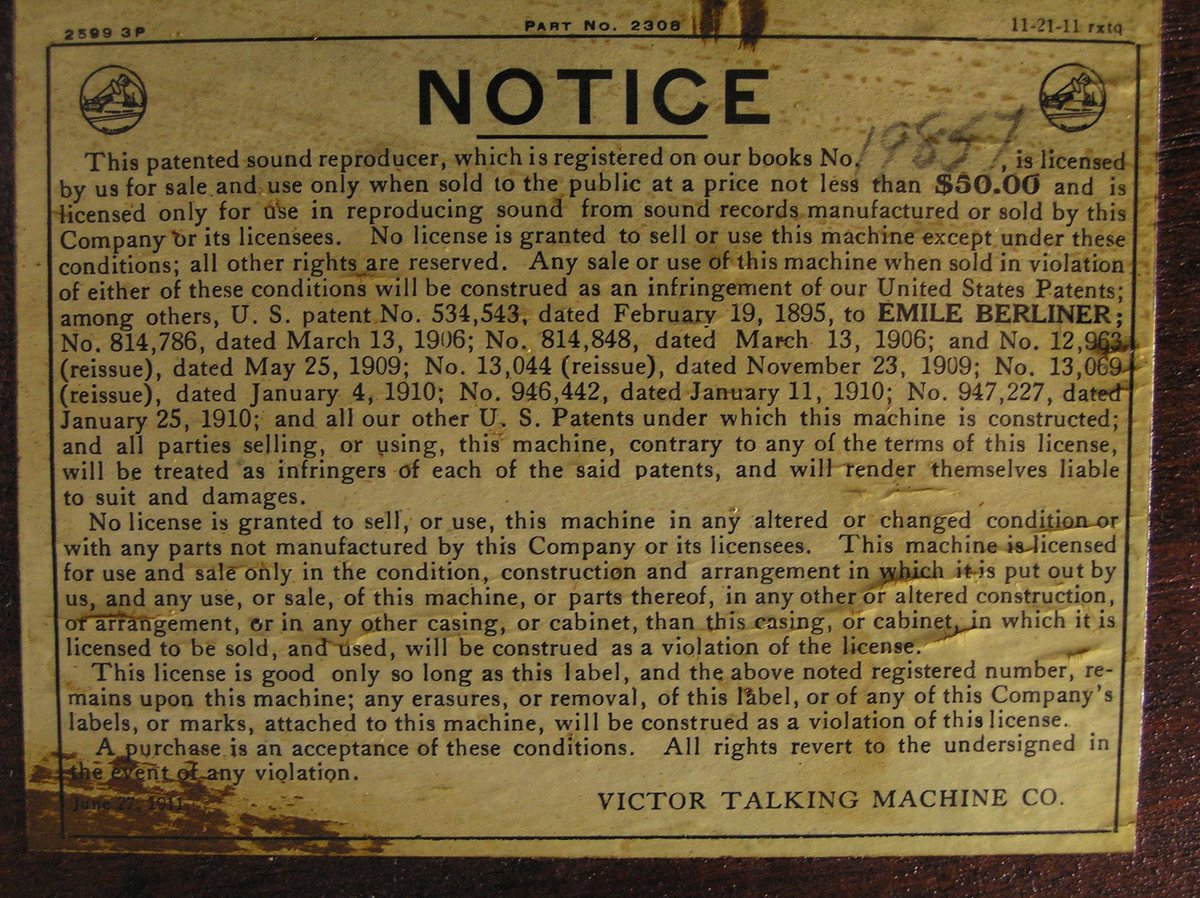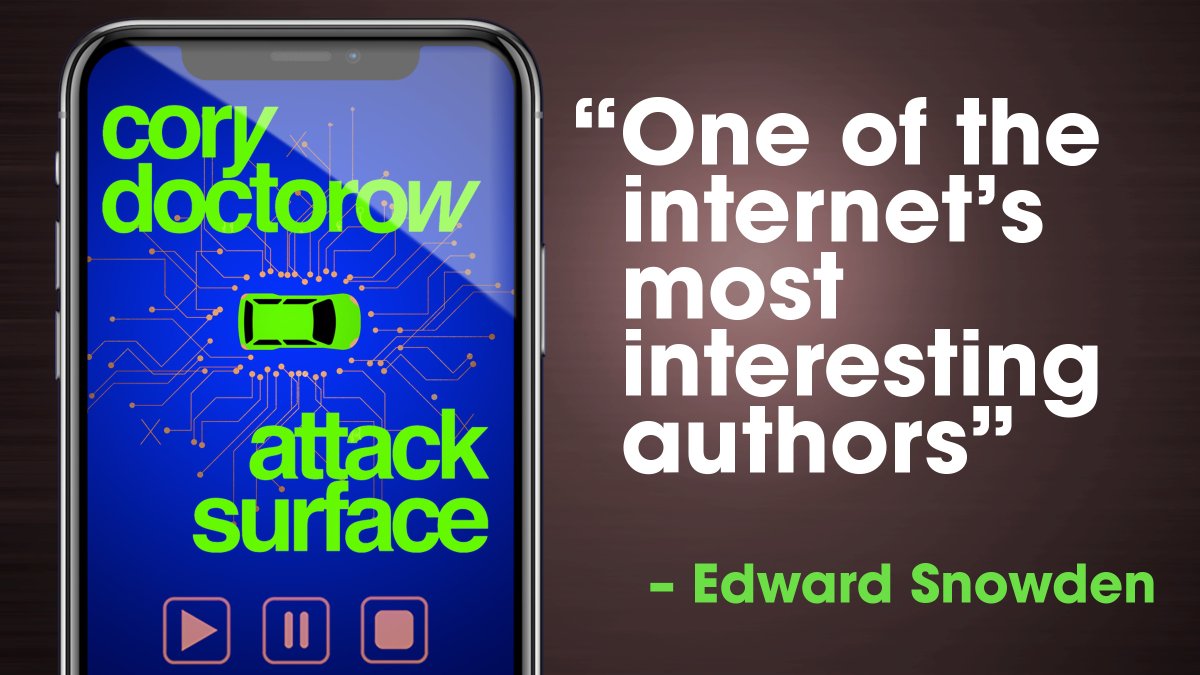Blogging (and tweet-threading) is a good way to keep track of the ideas and events that seem significant - breaking them down for an audience helps me make sense of them.
1/

2/
locusmag.com/2020/09/cory-d…
3/
The term "IP" drives activists nuts because it's so vague - trademarks, copyrights and patents aren't really related, and they also aren't really "property."
4/
"IP is any law that I can invoke that allows me to control the conduct of my competitors, critics, and customers."
5/
6/
7/
8/
9/
10/
11/
12/
And while this was invented by entertainment companies, software has spread "IP" into every class of device.
13/
But software IP isn't just a lever to force you to arrange your affairs to benefit a manufacturer's shareholders.
14/
15/
16/
17/
18/
I hope you enjoy it!
locusmag.com/2020/09/cory-d…
eof/





